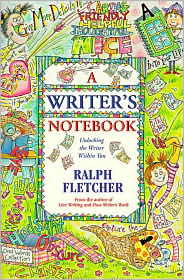Great tips from a great writer, Ralph Fletcher. Taken from www.ralphfletcher.com
Many young writers think of revision as all hard work and drudgery. But revision is more than just a way to fix a broken piece of writing. It's also a way to honor a good piece and make it even better. Here are some ideas to experiment with:
1. Change the beginning:
- Experiment with different kinds of leads. You might try sound effects, or an intriguing first sentence.
2. Change the ending:
- Maybe a circular ending, for example, or a surprise ending might work best for your writing.
3. Add a section:
- Have you left out something important?
4. Remove/delete a part:
- A piece of writing is like a rose bush--it grows healthier after you prune the unnecessary parts.
5. Revise for voice:
- Are there places in the writing where you stop sounding like you and start sounding like someone else?
6. Change the order:
You don't have to tell the story in the order it happened. Try starting in the middle, or try starting at the end and flashing back to the beginning.
7. Change the genre:
- The story you are working on might work better as poem, an information piece, or a letter.
8. Change point of view:
- Try telling the story through the "He" or "She" point of view, instead of the more common "I".
9. Change the tone:
- Make it funnier, more sarcastic, more serious.
10. Change the tense:
- From past ("I walked into the house") to present tense ("I walk into the house"), for example.
11. Slow down the "hot-spot" or crucial moment of the story:
- Use dialogue, emotion, and frame-by-frame detail.
12. Break a big topic (All About My Family, for example) into chunks or chapters:
- Think of each chunk as its own piece of writing.



